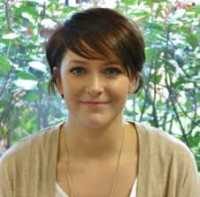17 May When Do Organized Activities for Kids Become Too Much?
MedicalResearch.com Interview with:
Dr Sharon Wheeler PhD
Lecturer in Sport, Physical Activity and Health
Department of Sport and Physical Activity
Faculty of Arts and Sciences
Edge Hill University
Lancashire
MedicalResearch.com: What is the background for this study? What are the main findings?
Response: It is well-known that family background and parents’ investment in their children has a big impact on a number of outcomes, including how well people do at school, the jobs they get, and how they spend their leisure time. It is also known that it is middle-class parents who tend to work particularly hard to make sure their children get on in life.
This research starts to question whether parents’ investment in their children’s organised activities is having the desired impact. Parents initiate and facilitate their children’s participation in organised activities as it shows that they are a ‘good’ parent and they hope such activities will benefit their children in both short-term (keeping fit and healthy, developing friendship groups) and long-term ways (getting jobs, having lots of opportunities in the future).
The reality, which has been highlighted in this research, is that while children might experience some of these benefits, a busy organised activity schedule can put considerable strain on parents’ resources and families’ relationships, as well as potentially harm children’s development and well-being.
MedicalResearch.com: What should readers take away from your report?
Response: We might now be at the stage where parents’ intensified investment in their children might be harmful rather than helpful. I don’t think we know enough at this stage to suggest a ‘limit’ to children’s participation in organised activities. However, it’s safe to say that children need more time for free-play, especially outdoors, for both their physical and mental health.
MedicalResearch.com: What recommendations do you have for future research as a result of this work?
Response: There are three key recommendations for future research:
(1) Whether middle-class parents are putting social (re)production above their children’s (and their own) wellbeing;
(2) What the physical, mental and social health outcomes associated with participation in organised activities actually are; and
(3) the extent to which organised activities can be regarded as ‘leisure’ if they are obligatory and potentially detrimental to children’s wellbeing.
No disclosur
Citation:
Sharon Wheeler, Ken Green. ‘The helping, the fixtures, the kits, the gear, the gum shields, the food, the snacks, the waiting, the rain, the car rides … ’: social class, parenting and children’s organised activities. Sport, Education and Society, 2018; 1 DOI: 10.1080/13573322.2018.1470087
[wysija_form id=”3″]
The information on MedicalResearch.com is provided for educational purposes only, and is in no way intended to diagnose, cure, or treat any medical or other condition. Always seek the advice of your physician or other qualified health and ask your doctor any questions you may have regarding a medical condition. In addition to all other limitations and disclaimers in this agreement, service provider and its third party providers disclaim any liability or loss in connection with the content provided on this website.
Last Updated on May 17, 2018 by Marie Benz MD FAAD

